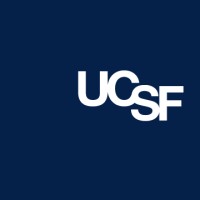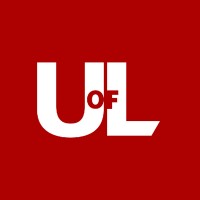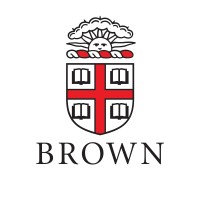Company Details
university-of-minnesota
27,883
529,314
6113
umn.edu
1140
UNI_3156784
Completed


University of Minnesota Company CyberSecurity Posture
umn.eduOne of the nation’s largest schools, the University of Minnesota offers baccalaureate, master’s, and doctoral degrees in virtually every field—from medicine to business, law to liberal arts, and science and engineering to architecture. The University of Minnesota system is made up of five campuses in Minnesota including Crookston, Duluth, Morris, Rochester, and the Twin Cities (Minneapolis/St. Paul). University of Minnesota Extension provides outreach and education services to Minnesota's communities through science-based knowledge, expertise and training. The University of Minnesota was recognized by Forbes in 2018 in the Best Employer, Best Employer for Diversity, and Best Employer for New Grads categories.
Company Details
university-of-minnesota
27,883
529,314
6113
umn.edu
1140
UNI_3156784
Completed
Between 750 and 799

 UM Global Score (TPRM)
UM Global Score (TPRM)XXXX

Description: The University of Minnesota confirms that it has contacted law enforcement and is investigating a claimed data breach that officials became aware on July 2021. According to the statement, the "U" hired outside forensics specialists from around the world to investigate reports of a breach and make sure the University's computer systems were safe. The University of Minnesota will provide options to help prevent the exploitation of personal information as well as alert anyone who has been impacted by the alleged breach.


No incidents recorded for University of Minnesota in 2026.
No incidents recorded for University of Minnesota in 2026.
No incidents recorded for University of Minnesota in 2026.
UM cyber incidents detection timeline including parent company and subsidiaries

One of the nation’s largest schools, the University of Minnesota offers baccalaureate, master’s, and doctoral degrees in virtually every field—from medicine to business, law to liberal arts, and science and engineering to architecture. The University of Minnesota system is made up of five campuses in Minnesota including Crookston, Duluth, Morris, Rochester, and the Twin Cities (Minneapolis/St. Paul). University of Minnesota Extension provides outreach and education services to Minnesota's communities through science-based knowledge, expertise and training. The University of Minnesota was recognized by Forbes in 2018 in the Best Employer, Best Employer for Diversity, and Best Employer for New Grads categories.


UC San Francisco is driven by the idea that when the best research, the best education and the best patient care converge, great breakthroughs are achieved. We pursue this integrated excellence with singular focus, fueled by collaboration among our top-ranked professional and graduate schools, medic

Dedicated to its motto, Ut Prosim (That I May Serve), Virginia Tech takes a hands-on, engaging approach to education, preparing scholars to be leaders in their fields and communities. As the commonwealth’s most comprehensive university and its leading research institution, Virginia Tech offers 215 u

Galileo Global Education, world leader in independent higher education with 210,000 students, 61 schools and 106 campuses in 18 countries, placed employability and innovation at the heart of its strategy for 15 years. Galileo Global Education's mission is to enable everyone, regardless of their star

À l’Université d’Ottawa, la plus grande université bilingue au monde, la population étudiante peut choisir d’étudier en français, en anglais, ou dans les deux langues. Située au cœur de la capitale du Canada, pays du G8, notre université jouit d’un accès direct aux plus grandes institutions du pays.

Founded in 1927, the University of Houston is the leading public research university in the vibrant international city of Houston. Each year, we educate more than 47,000 students in more than 250 undergraduate and graduate academic programs, on campus and online. UH awards over 10,000 degrees annual

The University of Louisville is a state supported research university located in Kentucky's largest metropolitan area. It was a municipally supported public institution for many decades prior to joining the university system in 1970. The University has three campuses. The 287-acre Belknap Campus is

Located in historic Providence, Rhode Island and founded in 1764, Brown University is the seventh-oldest college in the United States. Brown is an independent, coeducational Ivy League institution comprising undergraduate and graduate programs, plus the Alpert Medical School, School of Public Health

We’re Virginia Commonwealth University — the university FOR Virginia. You will see an incredible mix of attitudes, styles and stories. Inclusion is our heartbeat and it drives us to tackle difficult challenges others can’t or won’t. We do things differently here, because we know that different w

FIU is Miami's public research university. Offering bachelor's, master's and doctoral degrees, both on campus and fully online. Designated a Preeminent State Research University, FIU emphasizes research as a major component in the university's mission. For more than 50 years, FIU has positioned
.png)
When Lloyd Blankfein was CEO of Goldman Sachs, thousands of newly minted graduates from top universities joined the ranks of the investment...
The University of Minnesota data breach $5 million class action settlement will benefit individuals whose personal information was compromised in a 2021...
Fairfield Volleyball has won a league-best 15 conference titles and will play at Minnesota in the NCAA first round.
SAINT PAUL, Minn. — When you work in security and intelligence, keeping secrets is a part of the job, but at Metro State University,...
n response to a wave of recent cyberattacks that have disrupted city services and raised alarms across Twin Cities, Metro State University...
In light of St. Paul's recent cyberattack, we asked the MN Cyber Institute's executive director to explain where systems fail.
Minnesota has the right people, deep technical knowledge and years of leadership in securing critical infrastructure.
Gov. Tim Walz has activated the Minnesota National Guard to assist St. Paul in responding to a cyberattack on the capital city on Tuesday.
Minnesota Governor Tim Walz called in the National Guard to assist the City of Saint Paul in responding to a cyberattack.

Explore insights on cybersecurity incidents, risk posture, and Rankiteo's assessments.
The official website of University of Minnesota is http://z.umn.edu/9gi.
According to Rankiteo, University of Minnesota’s AI-generated cybersecurity score is 778, reflecting their Fair security posture.
According to Rankiteo, University of Minnesota currently holds 0 security badges, indicating that no recognized compliance certifications are currently verified for the organization.
According to Rankiteo, University of Minnesota has not been affected by any supply chain cyber incidents, and no incident IDs are currently listed for the organization.
According to Rankiteo, University of Minnesota is not certified under SOC 2 Type 1.
According to Rankiteo, University of Minnesota does not hold a SOC 2 Type 2 certification.
According to Rankiteo, University of Minnesota is not listed as GDPR compliant.
According to Rankiteo, University of Minnesota does not currently maintain PCI DSS compliance.
According to Rankiteo, University of Minnesota is not compliant with HIPAA regulations.
According to Rankiteo,University of Minnesota is not certified under ISO 27001, indicating the absence of a formally recognized information security management framework.
University of Minnesota operates primarily in the Higher Education industry.
University of Minnesota employs approximately 27,883 people worldwide.
University of Minnesota presently has no subsidiaries across any sectors.
University of Minnesota’s official LinkedIn profile has approximately 529,314 followers.
University of Minnesota is classified under the NAICS code 6113, which corresponds to Colleges, Universities, and Professional Schools.
No, University of Minnesota does not have a profile on Crunchbase.
Yes, University of Minnesota maintains an official LinkedIn profile, which is actively utilized for branding and talent engagement, which can be accessed here: https://www.linkedin.com/company/university-of-minnesota.
As of January 23, 2026, Rankiteo reports that University of Minnesota has experienced 1 cybersecurity incidents.
University of Minnesota has an estimated 15,170 peer or competitor companies worldwide.
Incident Types: The types of cybersecurity incidents that have occurred include Breach.
Detection and Response: The company detects and responds to cybersecurity incidents through an third party assistance with outside forensics specialists, and and communication strategy with providing options to prevent exploitation of personal information and alerting impacted individuals..
Title: University of Minnesota Data Breach
Description: The University of Minnesota confirms that it has contacted law enforcement and is investigating a claimed data breach that officials became aware on July 2021. According to the statement, the 'U' hired outside forensics specialists from around the world to investigate reports of a breach and make sure the University's computer systems were safe. The University of Minnesota will provide options to help prevent the exploitation of personal information as well as alert anyone who has been impacted by the alleged breach.
Date Detected: July 2021
Type: Data Breach
Common Attack Types: The most common types of attacks the company has faced is Breach.

Entity Name: University of Minnesota
Entity Type: Educational Institution
Industry: Education
Location: Minnesota, USA

Third Party Assistance: Outside Forensics Specialists.
Communication Strategy: Providing options to prevent exploitation of personal information and alerting impacted individuals
Third-Party Assistance: The company involves third-party assistance in incident response through Outside forensics specialists, .

Source: University of Minnesota
Additional Resources: Stakeholders can find additional resources on cybersecurity best practices at and Source: University of Minnesota.

Investigation Status: Ongoing
Communication of Investigation Status: The company communicates the status of incident investigations to stakeholders through Providing options to prevent exploitation of personal information and alerting impacted individuals.
Post-Incident Analysis Process: The company's process for conducting post-incident analysis is described as Outside Forensics Specialists, .
Most Recent Incident Detected: The most recent incident detected was on July 2021.
Third-Party Assistance in Most Recent Incident: The third-party assistance involved in the most recent incident was outside forensics specialists, .
Most Recent Source: The most recent source of information about an incident is University of Minnesota.
Current Status of Most Recent Investigation: The current status of the most recent investigation is Ongoing.
.png)
Improper validation of specified type of input in M365 Copilot allows an unauthorized attacker to disclose information over a network.
Improper access control in Azure Front Door (AFD) allows an unauthorized attacker to elevate privileges over a network.
Azure Entra ID Elevation of Privilege Vulnerability
Moonraker is a Python web server providing API access to Klipper 3D printing firmware. In versions 0.9.3 and below, instances configured with the "ldap" component enabled are vulnerable to LDAP search filter injection techniques via the login endpoint. The 401 error response message can be used to determine whether or not a search was successful, allowing for brute force methods to discover LDAP entries on the server such as user IDs and user attributes. This issue has been fixed in version 0.10.0.
Runtipi is a Docker-based, personal homeserver orchestrator that facilitates multiple services on a single server. Versions 3.7.0 and above allow an authenticated user to execute arbitrary system commands on the host server by injecting shell metacharacters into backup filenames. The BackupManager fails to sanitize the filenames of uploaded backups. The system persists user-uploaded files directly to the host filesystem using the raw originalname provided in the request. This allows an attacker to stage a file containing shell metacharacters (e.g., $(id).tar.gz) at a predictable path, which is later referenced during the restore process. The successful storage of the file is what allows the subsequent restore command to reference and execute it. This issue has been fixed in version 4.7.0.

Get company history
















Every week, Rankiteo analyzes billions of signals to give organizations a sharper, faster view of emerging risks. With deeper, more actionable intelligence at their fingertips, security teams can outpace threat actors, respond instantly to Zero-Day attacks, and dramatically shrink their risk exposure window.
Identify exposed access points, detect misconfigured SSL certificates, and uncover vulnerabilities across the network infrastructure.
Gain visibility into the software components used within an organization to detect vulnerabilities, manage risk, and ensure supply chain security.
Monitor and manage all IT assets and their configurations to ensure accurate, real-time visibility across the company's technology environment.
Leverage real-time insights on active threats, malware campaigns, and emerging vulnerabilities to proactively defend against evolving cyberattacks.




